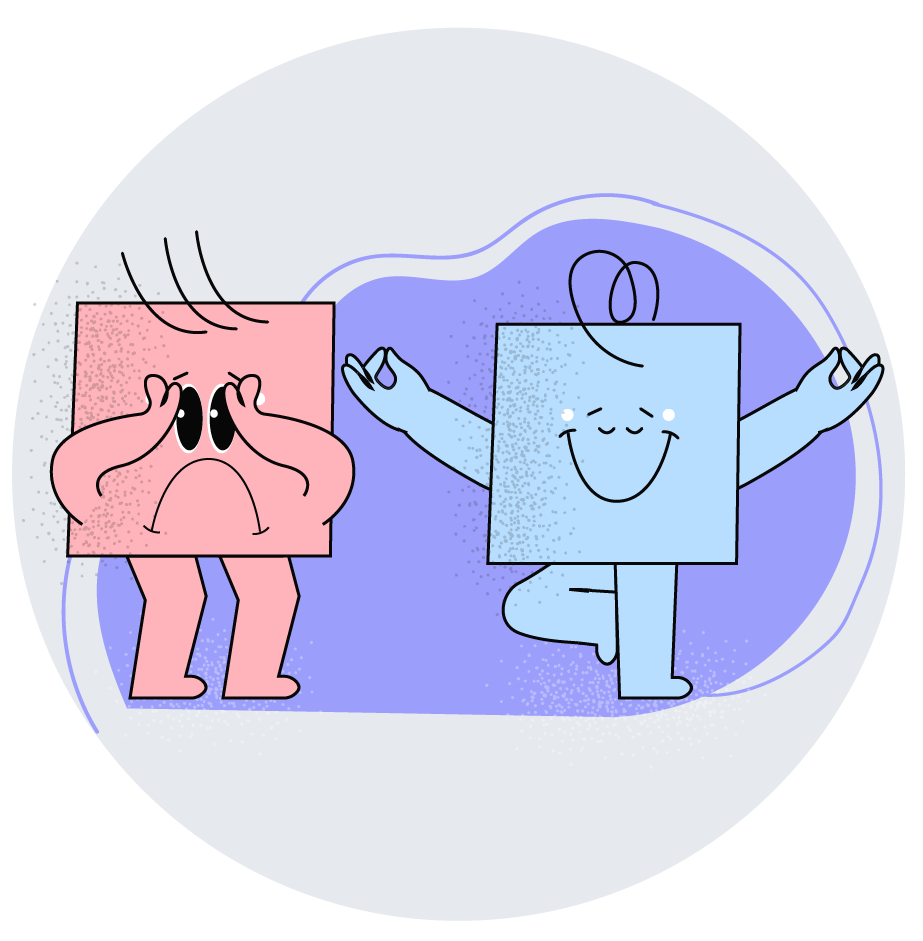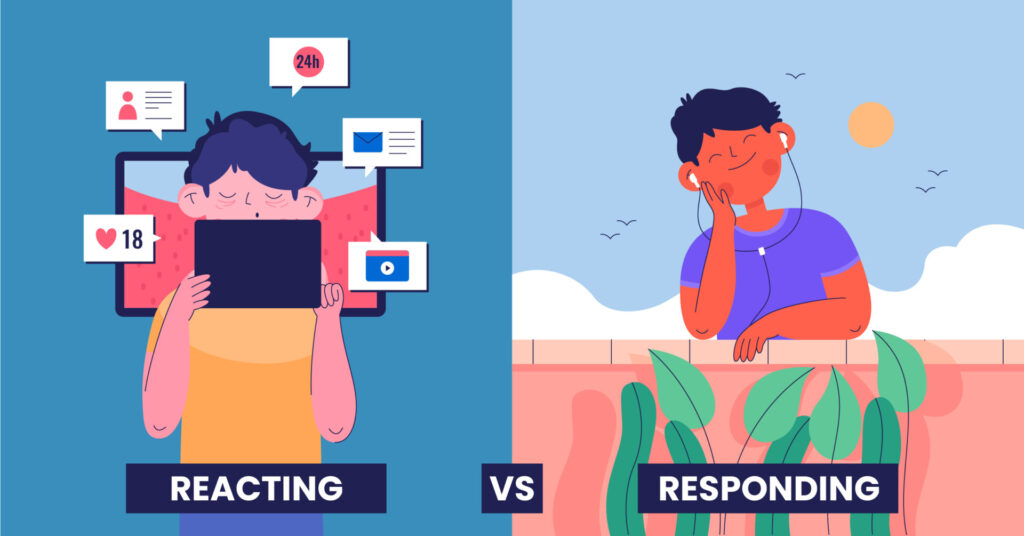What is a Reaction?
A reaction is a quick and instant action towards a stimulus. It does not involve an evaluation of action or its impact before the action is done. Rather, it is driven by emotions on autopilot mode without any filter. In some situations a reaction is accepted but in others it can have a negative outcome.
Reactions also include defence mechanisms of the body that have been established due to past experiences.
What is a Response?
A response is preceded by concrete thinking and a thorough evaluation of the stimulus and the impact of the action. During a response, the mind is calm which helps it to comprehend the incoming stimulus and presents the response after consulting the conscious and unconscious mind. It involves thinking about the consequences of the response on the surrounding environment and people.
The habit of responding is not instinctive, it has to be inculcated. Responses become a default behaviour when the individual has self-awareness, self-regulation, mindfulness empathy and good social skills.
Difference between React and Respond
A reaction and a response may seem similar. Both are certainly instigated by a stimulus. But both have a different process, which makes all the difference.
Below are a few points to clarify reacting vs responding:
| Reaction | Response |
| Instant and driven by emotions | Slow to come and processed through conscious and unconscious mind |
| Inbuilt in nature | Has to be learnt and purposefully practised |
| Based on prejudices, stereotypes and personal past experiences. Often a result of defence mechanism | Requires self-awareness, self-regulation, mindfulness empathy and good social skills. |
| Done without thinking of the consequences | Weighs the pros and cons of the response on the surrounding environment and people |
| Mainly survival oriented | Falls in line with the core morales if the individual |
| May have a positive or negative impact based on the situation | Has a positive impact |
| Impulsive and aggressive in nature | Calm and well thought through in nature |
| Leads to poor communication and may cause confusion in relationships | Bring about focused communication and even helps find solution to problems |
Which Should I Practice?
Since reactions are inbuilt,they come easier than responses. All of us have a tendency to react often rather than respond because responses have to be initiated purposefully. Despite being learnt, responses help you make better decisions. Therefore, in order to make better decisions and create a positive response through your actions, a response is always preferred.
One of the main requirements of responding is being mindful of the response. This mindfulness can be practised through the P.L.A.C.E. skill.
Pause
Take a step back and evaluate the trigger or situation.
Label the emotion
Understand the emotion you are feeling as a result of the trigger. It may be anger, annoyance, frustration, irritability, anxiety or disappointment.
Ask why
Ask yourself why you are feeling triggered. Why is the situation or person making you feel that specific emotion? This step helps us become self-aware
Choose a mindful response
Think of how you want to respond to it. Weigh the pros and cons of the response that you want to choose. If it affects you or anyone else negatively, try coming up with another response. Or, if it brings a positive response, execute it.
Empower yourself
Now that you have learnt the process of being mindful, make an effort to implement it each time there is a react vs respond situation.
Practising the P.L.A.C.E. skill regularly will help you move forward in life with a positive mindset.

Gain a perspective change for positive responses.
Therapy give you the space for change.
Reacting vs Responding Examples
Example 1: A child breaks something valuable in the house while playing.
- Reaction: The parent scolds the child immediately, which ends up frightening and emotionally hurting the child.
- Response: Calmly explaining the value of the item and the consequence of his/her actions.
If the situation is dealt with a response, the child will understand the consequence and consciously avoid similar actions thereon. Rather than frightening the child with anger and causing confusion in his/her mind.
Example 2: During an argument between two people, one of them begins yelling at the other.
- Reaction: The second person also begins yelling which makes the argument heated.
- Response: The second person refrains from yelling, talks calmly and waits for the first person to cool down and then states his/her opinion.
If both the people begin yelling at each other, it will lead to a bitter end and might even damage the relationship between the two. On the other hand, the response helps initiate a conversation and may even end with a solution to the reason for the argument.
Read More :
Trauma: What is it and How to Deal with or Overcome Bullying Trauma?








4 Responses
That is a very good tip particularly to those fresh to the blogosphere. Short but very precise information… Many thanks for sharing this one. A must read article!
I think the admin of this website is really working hard in support of his web page, since here every data is quality based information.
If you are going for most excellent contents like myself, just visit this website all the time as it gives quality contents, thanks
I’m impressed, I have to admit. Seldom do I come across a blog that’s equally educative and interesting, and without a doubt, you have hit the nail on the head. The issue is something that not enough people are speaking intelligently about. I am very happy that I stumbled across this in my search for something concerning this.